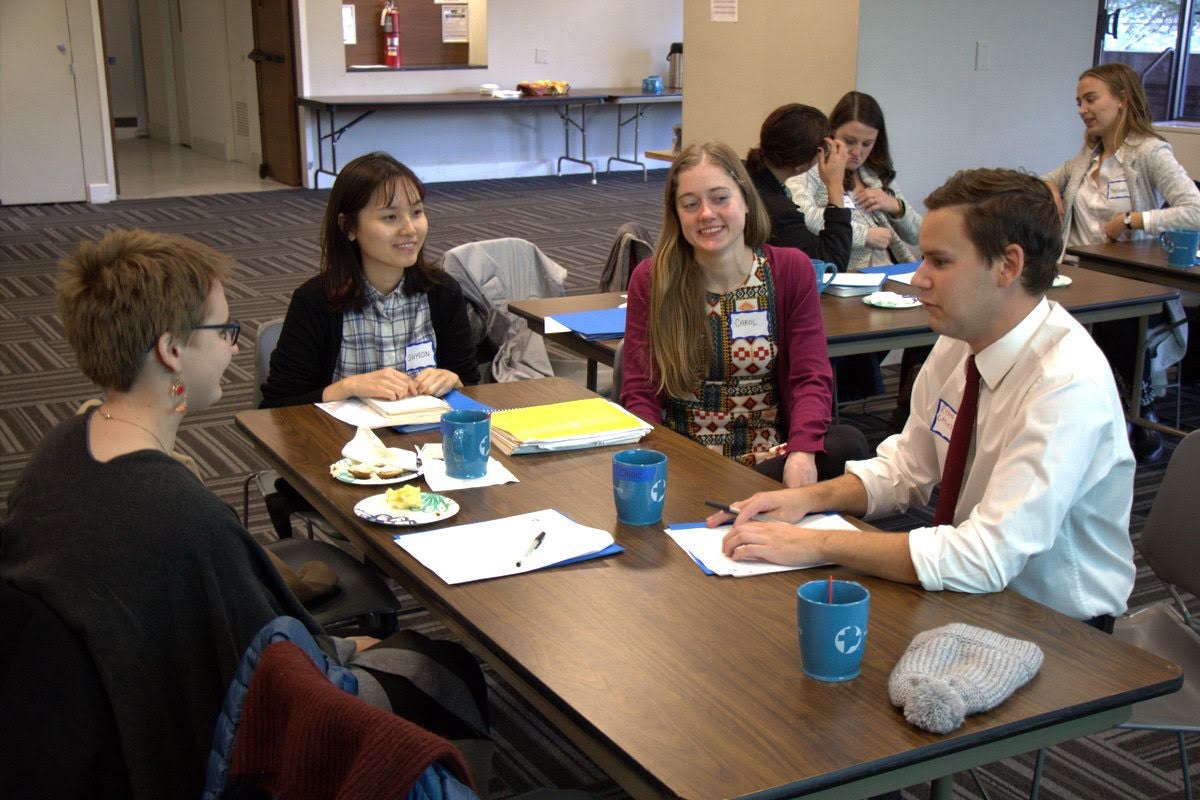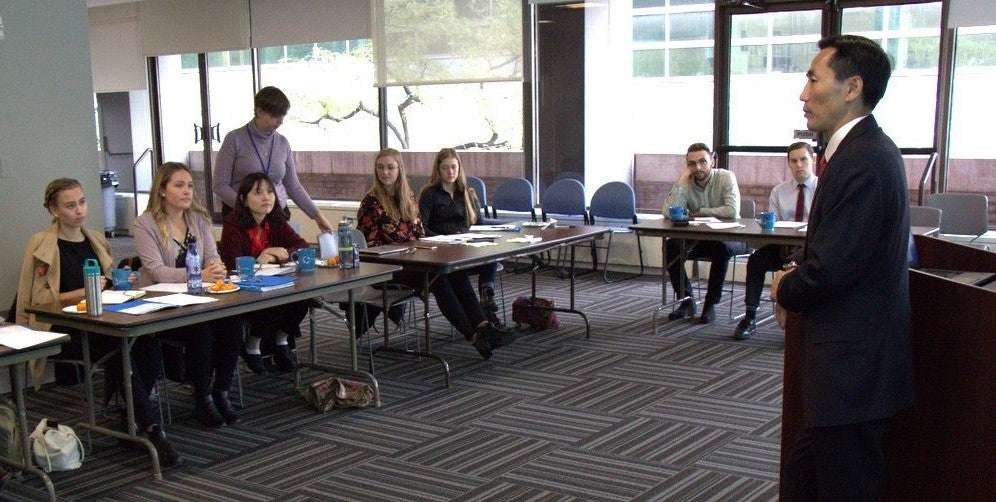
One of the ways the MCC UN office team accomplishes this work is through its annual Student Seminar, which invites participants from across Canada and the United States to learn, discuss, and engage with issues in areas where MCC does its work. This year, Kindred Credit Union Centre for Peace Advancement’s Host Suyeon Kang and Communications & Research Assistant Grace Wright attended the seminar on peacebuilding in the Democratic People’s Republic of Korea (DPRK or North Korea).
Prior to attending the seminar, Grace had limited knowledge about the history of Korea and why it was a divided nation. Although she made an effort to learn about the conflict, she lacked a sense of what was being done to broker peace. This shifted when she began to work alongside Suyeon, the CPA’s International Volunteer Exchange Program participant from South Korea. As a South Korean, Suyeon saw the impact of the conflict in a much more direct way, and offered a unique perspective on the issue. Suyeon shares, “South Korea has become much more disconnected with North Korea during these past ten years, which has made South Koreans desensitized to North Korea.” Recently, there has been a gradual shift in attitudes with the 2018 inter-Korean Olympic team and diplomatic summits ushering in a new era of peace in the Korean Peninsula.
While at the seminar, students heard about MCC’s advocacy work, garnered a multi-dimensional perspective on the Korean War and its influence on the current conflict, learned about how the media constructs the narrative of the conflict, and discussed how to be advocates for peace in the DPRK.
One of the many influential pieces of information shared at the seminar was the far-reaching consequences of the UN’s economic sanctions on humanitarian efforts in the DPRK. Students heard from MCC staff who do humanitarian work in the DPRK about the challenges presented by these sanctions, including stopping MCC from bringing water filtration systems, as well as simple items like nail clippers in sanitary kits, into the country.
As students heard from speakers connected to the DPRK and engaged in activities that encouraged them to think critically about the issues, the seminar highlighted the importance of understanding how narratives of conflicts are shaped and the importance of hearing different sides of a story. Grace shares, “I think having insight into how your perceptions of an issue have been shaped is crucial to gaining a critical perspective of a conflict and the complexities of resolving it, especially ones with such contested histories.”

Read more about how MCC is building relationships with North Koreans, including through delegations focused on learning about agricultural research and farming practices in Manitoba.
Interested in keeping up to date on in issues in Korea? Check out Zoom in Korea.